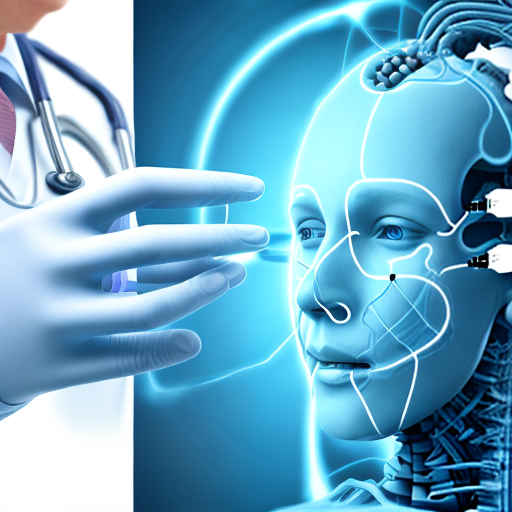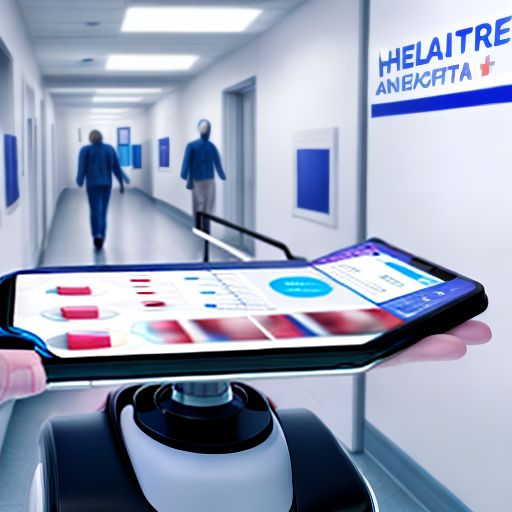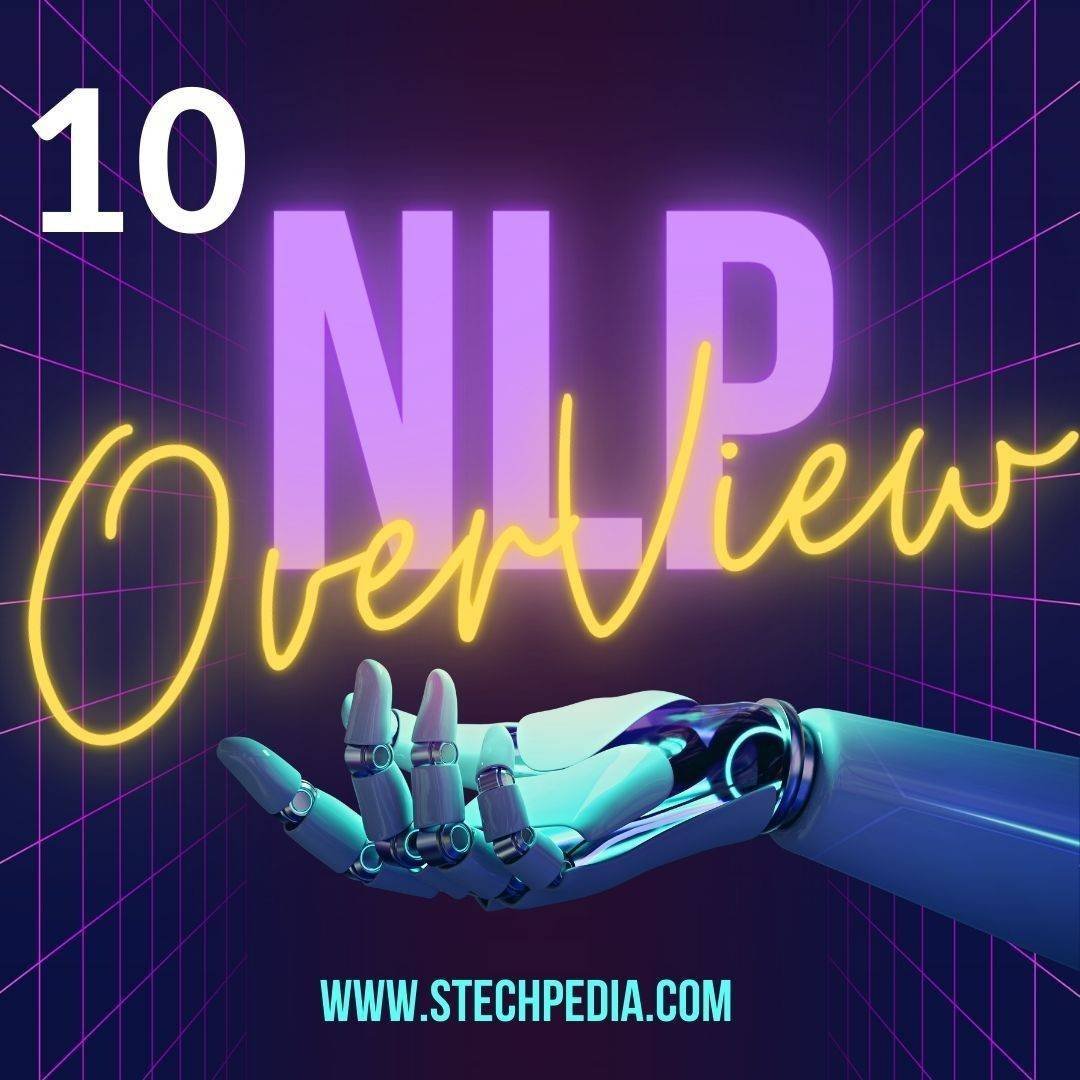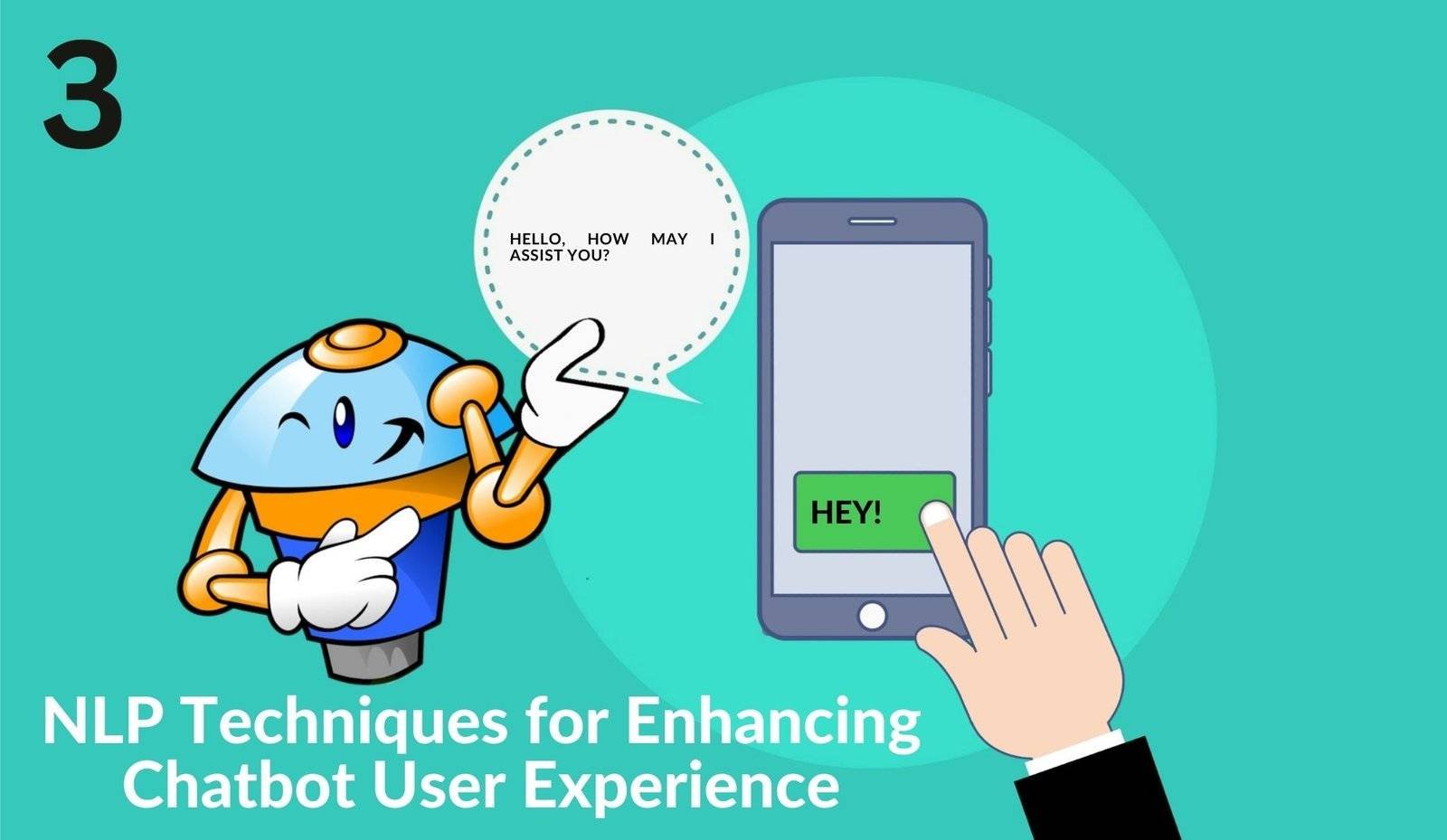Artificial intelligence is rapidly transforming the healthcare industry, and NLP Libraries are playing a crucial role in it. NLP allows machines to understand human language and interpret complex medical data, enabling better patient care and more efficient processes. The potential for NLP libraries in healthcare AI cannot be overstated, from enhancing data analysis to personalized medicine to sentiment analysis of patient experiences. In this blog post, we will explore the various applications of NLP libraries in healthcare and how they are revolutionizing the way we approach patient care.
Overview of NLP Libraries in Healthcare

NLP Libraries are software tools that allow machines to interpret and understand human language. In the healthcare industry, NLP libraries have become increasingly popular, as they enable medical professionals to extract valuable insights from large amounts of unstructured data.
These libraries can analyze a wide range of textual data sources including electronic health records, clinical notes, patient surveys, social media posts and others. The analysis helps clinicians make more informed decisions about diagnosis and treatment options for patients.
In addition to this, NLP libraries help streamline administrative processes by quickly extracting specific information such as patient demographics or lab results. This reduces the time spent on manual tasks and frees up staff to focus on other important aspects of patient care.
Moreover, NLP can be used in combination with machine learning algorithms for predictive analytics which enables early detection of diseases like cancer or diabetes before their onset. As research into AI continues to expand, these applications will only continue to grow in importance within the healthcare field.
Importance of NLP in Healthcare AI


Natural Language Processing (NLP) is a branch of Artificial Intelligence (AI) that deals with the interaction between computers and humans in natural language. In healthcare, NLP has become increasingly important as it allows for processing large volumes of unstructured data such as clinical notes, medical records and patient feedback.
One major advantage of using NLP in healthcare AI is its ability to enhance the accuracy and speed of diagnosis by providing more detailed insights into patients’ symptoms and medical history. This can lead to earlier detection, faster treatment options and improved patient outcomes.
Another key benefit lies in personalized medicine where NLP algorithms are used to analyze genetic data, identify risk factors and tailor treatments accordingly. This not only improves individual health outcomes but also helps reduce costs associated with overprescribing unnecessary treatments.
In addition, NLP libraries have contributed significantly to streamlining administrative processes within healthcare systems through automated transcription services which convert spoken or written text into accurate structured data that can be easily analyzed for insights.
The importance of NLP in healthcare AI cannot be overstated as it plays a crucial role in improving patient care while simultaneously reducing costs through more efficient decision-making based on comprehensive analysis of unstructured data sets.
Enhancing Data Analysis with NLP Libraries
NLP Libraries have revolutionized the healthcare industry by enabling effective data analysis. NLP is a subset of AI that focuses on the interaction between computers and human language. Using NLP libraries, healthcare professionals can extract valuable insights from unstructured data such as clinical notes, patient surveys, and social media posts.
The use of NLP in healthcare has enabled organizations to make informed decisions based on accurate data analysis. With traditional methods of data analysis proving time-consuming and sometimes unreliable, NLP offers an efficient alternative that saves both time and money while enhancing accuracy.
In addition to extracting useful information from large amounts of unstructured text-based data, NLP also makes it possible to analyze sentiment. By analyzing patients’ feedback using sentiment analysis techniques facilitated by these libraries, healthcare providers can get a better understanding of patient experience which could help them improve service delivery.
Moreover, utilizing these libraries for predictive analytics helps medical staff identify high-risk patients early enough so they may receive timely interventions before their condition deteriorates further.
Incorporating natural language processing into healthcare systems through relevant libraries enhances the efficiency and effectiveness with which health care practitioners approach decision-making processes making the industry more streamlined than ever before.
Personalized Medicine with NLP in Healthcare
Personalized medicine is an emerging field in healthcare that aims to tailor treatments based on individual patients’ genetic and clinical characteristics. NLP libraries are essential tools for personalized medicine, allowing healthcare professionals to analyze vast amounts of patient data quickly and accurately.
One way NLP can help with personalized medicine is through the identification of biomarkers. These markers are unique biological features that indicate a specific disease or condition, such as cancer or heart disease. By using NLP algorithms to detect these markers in large volumes of patient data, doctors can develop targeted treatment plans that address each patient’s unique needs.
Another way NLP supports personalized medicine is by analyzing unstructured data contained within electronic health records (EHRs). This includes doctor’s notes, lab results, imaging reports, and more. With natural language processing techniques applied to this data source, physicians can extract valuable insights about a patient’s medical history and current condition more efficiently than ever before.
NLP also allows clinicians to identify patterns across multiple EHRs from various providers for a particular diagnosis or medication response. The technology enables them to see how different factors contribute positively or negatively so they could adjust their approach accordingly.
In summary, NLP has enormous potential for advancing personalized medicines in healthcare by enabling faster analysis of large volumes of unstructured patient data while increasing accuracy during analysis. It will be exciting to see how this technology continues helping clinicians make better decisions about diagnoses and treatment options according to each person’s needs in the future!
Streamlining Processes: NLP Libraries in Healthcare
NLP libraries have the potential to streamline various processes in healthcare, improving efficiency and reducing costs. One area where NLP can be particularly helpful is in medical coding. Medical coding involves translating written descriptions of diagnoses and procedures into standardized codes for billing purposes.
Without NLP, this process can be time-consuming and error-prone. However, by leveraging NLP algorithms that are designed to identify specific medical concepts within text data, coders can more quickly and accurately assign codes to patient records.
Another way that NLP libraries can streamline healthcare processes is through automating administrative tasks such as scheduling appointments or sending reminders for medication adherence. By using chatbots powered by natural language processing technology, patients could easily schedule appointments without human intervention.
Moreover, with the help of sentiment analysis techniques provided by NLP libraries, healthcare providers could gain insights into what patients are saying about their services on social media platforms or review websites. This would allow them to make necessary improvements in real-time while enhancing patient satisfaction.
There is tremendous potential for NLP libraries to help streamline various aspects of healthcare operations from administrative tasks like appointment scheduling and billing practices to clinical areas such as diagnosis coding and personalized medicine applications.
Sentiment Analysis in Patient Experience using NLP
Sentiment analysis is a powerful tool in healthcare that uses natural language processing (NLP) to extract insights from patient reviews, feedback and comments. NLP libraries are used to analyze the sentiment of patients’ experiences with healthcare services providers.
One important aspect of sentiment analysis using NLP is identifying negative reviews and feedback so that healthcare providers can address shortcomings in their services. This helps improve patient experience and satisfaction levels.
However, it’s not just about identifying negative feedback. Sentiment analysis also helps identify positive feedback which allows providers to understand what they’re doing well and how they can maintain or even enhance their good practices.
Moreover, sentiment analysis can give a deeper understanding of the emotions behind patients’ words. It takes into account sarcasm, irony or even humor which plays a crucial role in making accurate analyses.
Analyzing patient sentiments using NLP adds value by providing actionable insights for improving care delivery across different areas such as communication skills among staff members or enhancing clinical processes. Healthcare organizations should embrace this technology trend for better decision-making while still upholding ethical considerations around privacy concerns.
Ethical Considerations in Healthcare NLP
As exciting as the advancements in NLP libraries for healthcare may be, it’s important to consider the ethical implications of using such technology. One major concern is patient privacy and confidentiality. Healthcare organizations must ensure that any data collected through NLP analysis remains secure and private.
Another issue to consider is bias in machine learning algorithms. If these algorithms are based on biased training data, they could potentially perpetrate discrimination against certain groups of patients or lead to inaccurate diagnoses.
Additionally, there is a risk of misinterpretation when it comes to natural language processing. The context surrounding a patient’s words can greatly affect their meaning, so it’s crucial that healthcare professionals understand how to interpret this context correctly.
Transparency with patients is essential when implementing NLP technology in healthcare settings. Patients have a right to know what information is being collected about them and how it will be used.
While NLP libraries have great potential to improve healthcare outcomes, careful consideration must be given to ethical concerns in order for this technology to be used safely and ethically within the industry.
Advancements in NLP Libraries for Healthcare
The field of Natural Language Processing (NLP) is constantly evolving, and this is especially true in the healthcare industry. There have been numerous advancements in NLP libraries that are transforming the way data is processed and analyzed.
One major advancement includes the integration of machine learning algorithms into NLP libraries. This allows for more accurate predictions and insights from large sets of patient data. Additionally, there has been progress made in developing methods for extracting information from unstructured data sources such as clinical notes or social media posts.
Another important area of development in NLP libraries for healthcare is the ability to analyze multilingual text. With an increasingly globalized world, it’s crucial that healthcare providers can understand patient needs regardless of language barriers.
Furthermore, recent advancements include improvements to natural language generation (NLG), which involves generating human-like responses to user queries. This technology has great potential for use in patient communication or as a tool for clinicians to better understand complex medical terminology.
These advancements demonstrate how NLP libraries are constantly pushing the boundaries of what’s possible with data analysis and interpretation in healthcare. As technology continues to improve, we can expect even more exciting developments on the horizon.
Future of NLP in Healthcare AI
The future of NLP in healthcare AI is very promising. As technology continues to advance, the capabilities of NLP libraries will also grow. In the near future, it’s likely that NLP will be able to assist with clinical decision-making by extracting relevant information from medical records and patient histories.
One exciting area where NLP can improve healthcare is in drug development. By analyzing large amounts of data on drug interactions and side effects, NLP algorithms can help researchers identify potential new treatments faster than ever before.
Another important use for NLP in healthcare is improving patient outcomes through personalized care plans. With access to a patient’s complete health record and other relevant data points, an AI-powered system could recommend specific treatment options tailored to each individual.
As more hospitals and clinics adopt electronic health records (EHRs), there will also be a growing need for natural language processing tools that can extract meaningful insights from these vast troves of data. This has the potential to revolutionize how we approach population health management, disease prevention, and early intervention efforts.
The possibilities for NLP libraries in healthcare are endless as long as there are creative minds working towards creating innovative solutions.
NLP Libraries: Transforming Healthcare Insights
As we have seen, NLP libraries are revolutionizing the way healthcare professionals work with data and AI. They enable personalized medicine, streamline processes, improve patient experience, and provide valuable insights for decision-making.
With advancements in technology and machine learning algorithms constantly improving, the potential of NLP in healthcare is limitless. It can help us identify patterns that we may have missed before and unlock new areas of research that could lead to breakthroughs in treatments.
However, it’s crucial to consider ethical considerations when utilizing NLP libraries in the field of healthcare. We must ensure patient privacy and confidentiality are maintained at all times.
NLP libraries hold tremendous promise for transforming healthcare insights through their ability to analyze vast amounts of data quickly and accurately. By leveraging this cutting-edge technology responsibly, we can make significant strides towards improving patient care outcomes while advancing medical knowledge as a whole.







